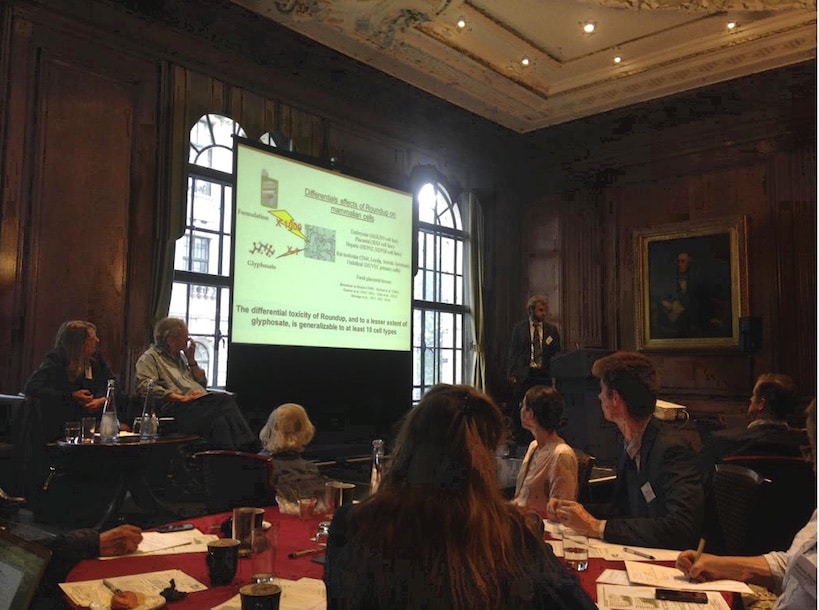The Soil Association is calling for a ban on the use of glyphosate sprayed on UK wheat as a pre-harvest weedkiller and its use to kill the crop to ripen it faster.
New figures analysed by the organic charity from government data were released today (15 July) at a scientific briefing in London. These revealed that glyphosate use in UK farming increased 400% over the last 20 years, and that it is one of the three pesticides regularly found in routine testing of British bread – appearing in up to 30% of samples tested by the Defra committee on Pesticide Residues in Food (PRiF).
Professor Christopher Portier, one of the co-authors of a recent report by the International Agency for Research on Cancer’s (IARC), which determined glyphosate’s status by the World Health Organisation as a probable carcinogen, reiterated the IARC’s conclusions, and said: “Glyphosate is definitely genotoxic. There is no doubt in my mind.”
Dr Robin Mesnage of the Department of Medical and Molecular Genetics at Kings College in London, revealed new data analysis claiming to show that the Monsanto product RoundUp is 1,000 times more toxic than Glyphosate alone. “Glyphosate is everywhere throughout our food chain – in our food and water. The lack of data on toxicity of glyphosate is not proof of safety and these herbicides cannot be considered safe without proper testing. We know Round Up, the commercial name of Glyphosate based herbicides, contains many other chemicals which, when mixed together are 1,000 times more toxic than glyphosate on its own.”
Peter Melchett, Soil Association policy director said: “If glyphosate ends up in bread it’s impossible for people to avoid it, unless they are eating organic. On the other hand, farmers could easily choose not to use glyphosate as a spray on wheat crops – just before they are harvested. This is why the Soil Association is calling for the immediate ending of the use of Glyphosate sprays on wheat destined for use in bread.”
“If glyphosate ends up in bread it’s impossible for people to avoid it, unless they are eating organic. On the other hand, farmers could easily choose not to use glyphosate as a spray on wheat crops – just before they are harvested”
The Soil Acknowledges that levels of glyphosate found in bread are well below the Maximum Residue level (MRL) set by the EU. But it warns that the MRL was set well before this latest determination by the WHO. And it suggests that, as a potential endocrine disrupter, there may be no safe lower level for human consumption of glyphosate.
Picture: Dr Robin Mesnage presenting research on the toxicity of glyphosate earlier today











